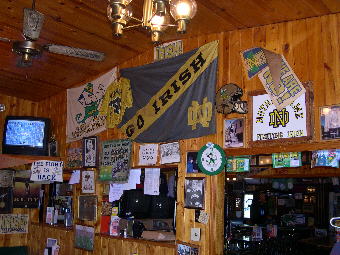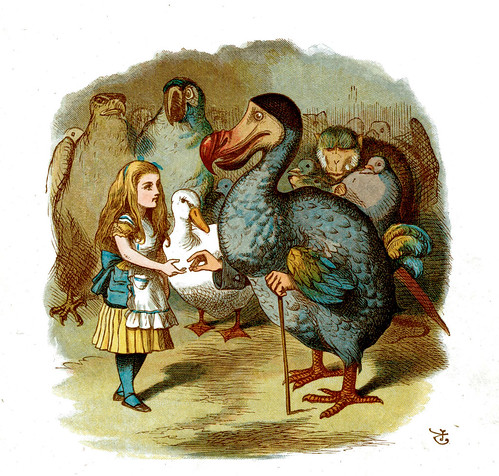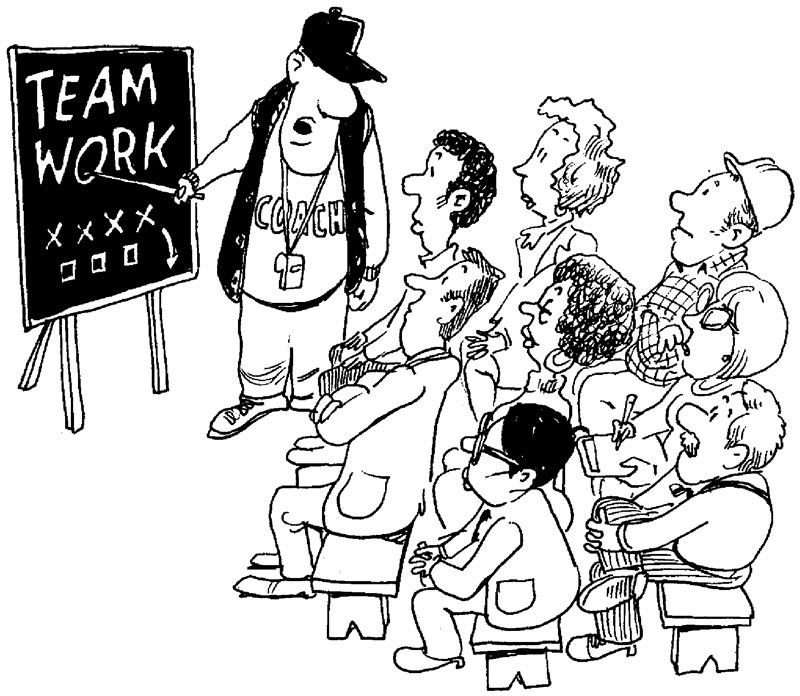Since I am passionate about helping those who are injured, I have set before myself the goal of becoming an orthopedic surgeon. However, I do not want to be just some run-of-the-mill doctor: a practitioner who simply blends in with the crowd and occupies no more than a tiny splotch on the orthopedic spectrum. Instead, I would love to bring a sense of deep compassion to my work place with the hopes of creating an atmosphere that would inspire my coworkers and patients alike. Friendliness and optimism would be of the utmost importance when interacting with patients—no more of the stark, grim projections and hollow relationships.

THIS IS THE MESSAGE THAT I HOPE TO CONVEY AT MY WORKPLACE. HOPEFULLY, BY SHOWING THE PATIENTS THAT I TRULY CARE ABOUT THEM, THEY WILL BE MOTIVATED TO ATTACK THEIR REHAB RATHER THAN BE OVERWHELMED WITH SELF-PITY. [P1]
While this is my ambition, I realize that I am a long way away from revolutionizing how surgeons interact with patients, let alone just being an orthopedic surgeon. The road to becoming a member of such a prestigious association of professionals is both a rigorous and treacherous one, but it is my mission and I have chosen to accept it. There are pitfalls on either side and there is really no room for failure, no proverbial safety net.

I AM METAPHORICALLY STANDING ON THIS BRIDGE RIGHT NOW. ITS CREAKY, THE ROPE ISN'T VERY STURDY, AND I BETTER NOT LOOK DOWN. [P2]
My journey began on August 27, 2008: my first day of class at UT. I am taking the first tier of pre-med requirements: the first rung on the surgeon’s ladder. So far I have had success in these classes, but it has been far from easy. I have seen many nights turn into mornings, P.M.s into A.M.s, in attempt to be prepared. The rest of my undergraduate career is mapped out as well. All in all, I will have to have not just taken but gotten A’s in five more biology classes, seven more chemistry classes, and four physics classes—it doesn’t help that I absolutely despised the sciences in high school. What makes it so infuriating is that the knowledge I will obtain in these next few years will most likely be of no use in medical school; a carpentry class (for that is essentially what surgery is) would be of more practical benefit). I just have to not focus on this fact and understand that, when chasing down any goal, certain sacrifices have to be made. These classes are meant to distinguish who the best students are: who is really cut out for the next step. I am willing to partake in such a competition and pay my dues as every other doctor before me has. If I happen to survive this gauntlet of academic torment, I must then face my biggest adversary yet: the stress-causing, sleep-depriving, soul-sucking MCAT. Once this crucial battle is over (which hopefully ends with me stabbing the foul beast with my number two pencil), I can finally apply to medical school. Even then though, nothing is guaranteed.

THE ROAD TO MED SCHOOL IS MUCH LIKE THE JOURNEY THAT FRODO TOOK THROUGH MIDDLE EARTH. BOTH END WITH A MOMENTOUS BATTLE. [P3]
My future will reside in the hands of some admissions couselor; my dreams will depend on how well I look on a piece of paper, a medium that cannot fully convey a person’s desire nor their heart. If I do happen to (gasp!) get rejected from medical school, all hope is not lost. I could continue to reapply and, if my application is lacking in certain areas, a master’s degree is usually sufficient in making up for dificiencies. Yet, to me that simply translates into two more years of school, two more years of debt, two more years before I can truly start my adult life.
At this point in my hypothetical career odyssey, I would be twenty-two years old and just starting med school. What would follow is four more years of school that would be followed by a five year residency. When putting this into perspective, I can definitely understand why Dr. Marymont was not the most compassionate of people. Thirteen years of higher biology bludgeoning can do that to anybody. That will be the hardest part of my journey: keeping my personality and not letting the constant influx of knowledge replace my compassion, my original reason for taking up this profession. I cannot let my left brain completely overtake the right, for “gifted leadership occurs where heart and head—feelings and thought—meet.” I think the best way to prevent myself from becoming an educational drone would be to get involved in different programs and organizations here at the university. I have recently joined the rugby team and plan to try out for the Texas Wranglers next semester. Now, I notice that these organizations have nothing to do with the medical field, but that is the point. Rugby has without a doubt kept my mind fresh these past few weeks—it is something I look forward to all day. Just as football provided an escape during my high school career, rugby is a way for me to break free from the clutches of books and pressure. Also, student organizations such as these would provide me with a new kind of education that would not be taught in medical school: everyday interaction with a wide variety of people. It is a way of honing my skill of relating and communicating with others. These non-traditional classrooms will enhance the skills I need to remain a compassionate person, to keep from “defining myself narrowly” and adopting the attitude that “I’m just a surgeon. You really ought to discuss this experience with someone else.” However, even by remaining a compassionate person as I entered into the final stage of my career journey, my goal would still not be realized. Only after years of treating my patients with actual care, showing them the kind of compassion I longed for in my experience, and communicating this method of treatment to my coworkers and understudies could I consider myself a success. After all, a doctor is defined as “somebody who can fix things” and that to me applies to more than just bones and ligaments but also emotions and egos.


I WANT TO PREVENT MY UPCOMING 13 YEARS OF EDUCATION FROM BURNING OUT MY BRAIN, SPECIFICALLY MY COMPASSION. I MEAN TO DO SO BY BEING INVOLVED IN ACTIVITIES, LIKE RUGBY, THAT HAVE NOTHING TO DO WITH THE MEDICAL PROFESSION. [P4 AND P5]
Plan II, specifically my World Literature class, has also gone a long way in keeping my mind fresh throughout this school year. if it isn't obvious enough by now, I am not really interested in chemistry and biology. In fact, they really bore me. I could care less about mitochondria; yet these are classes necessary for me to achieve my goal of helping and truly caring for those who are injured. It is in my Plan II classes that I am able to take classes that enrich my being. While I realize that learning about Greek physics serves (ok, I'll admit it) no practical purpose whatsoever, it is a subject that i enjoy learning about. So, my courses are essentially separated into the practical (and boring) and interesting (and useless). However, these inapplicable courses do serve a greater purpose than exciting my brain: they are assisting in making me a more dynamic, well-rounded person. What I love about my World Literature class is that we don't really focus on novels (as the title implies), but on developing ourselves into efficient, motivated young people who strive to be leaders in whatever they pursue. It is a class meant to make us not just into better students, but into better people. This will ultimately pay off in the end, I am sure, as med schools are looking for students who major in something other than a science. They want students who see patients as a "whole patient"; as a person.
It is quite apparent to me the enormity of the daunting task that I have set before myself. I understand that there is a possibility that I could encounter numerous bumps on the road to my goal; perhaps I may even get to a point where I can go no further. I accept the fact that I may fail in terms of the objective I have put before myself. I consider myself a leader “with high self-awareness” and I “know [my] limitations and strengths.” I am not sure if organic chemistry is one of them. However, that thought does not worry me. Plus, I want to make sure that whatever I do, I am able to lead “a balanced life along the way.” “[I am] not waiting for a heart attack, divorce, or job loss (or rejection from medical school) to wake [me] up to [my] relationships, spiritual life, community responsibility, and physical health.” I do not plan on judging myself on career accolades, but rather on the kind of person I create over the rest of my years. I believe that no matter what profession I end up doing, whether it be repairing joints or repairing cars, I will be just fine because of the example that my dad has set before me.
In my opinion, my father is the quintessential leader (and consequently the best person to idolize)—of our family, of the Crosby school district, of the entire Crosby community. As the superintendent of Crosby ISD, he has the weight of about 5,000 kids on his shoulders every day, not to mention all of the district’s employees, from the principles to the custodians to the bus drivers. He is without a doubt the most beloved man in our entire community and is its unanimous director. He goes to every school event, whether it be the first grade Christmas play or the varsity football games on Friday nights, is willing to give people second chances, calls employees or students to congratulate them on an accomplishment, and literally knows almost every high schoolers full name. Often, especially when we go to Wal-Mart and we have to stop every five minutes to say “hi” to someone, I am in awe of my dad in how he is able to genuinely care about so many people. Like Elanor Rigby, he always has a smile on when he goes out the door and is always willing to stop and talk to anyone.
http://www.youtube.com/watch?v=boc7rnhkLAk
HERE IS A LINK TO THE "ELEANOR RIGBY" MUSIC VIDEO
I am so proud to have him as a father. He instilled in me at a young age when I would complain of having to do menial, monotonous chores that “it is certainly not what you do that defines you, but how you do it.”

MY DAD IS WITHOUT A DOUBT MY HERO. HE IS THE GREATEST LEADER I KNOW. IF I CAN JUST APPLY THE MORALS HE HAS TAUGHT ME THROUGHOUT MY LIFE, I AM CONFIDENT THAT I WILL BE SUCCESSFUL. [P6]
My dad possesses many various types of leadership; yet, where he truly excels is in promoting teamwork, being transparent, and being proactive. At work he “generates an atmosphere of friendly collegiality and [is himself a] model of respect, helpfulness, and cooperation.” When he interacts with people, everyone is treated the same: they all receive a look in the eyes, a smile on his face, and his full attention. He possesses an “authentic openness to others about one’s feelings, beliefs, and actions.” He is not a faker; he truly listens and cares about others. When Hurricane Ike hit just a few weeks ago, my dad did not wait for someone else to worry about the community members who would not be able to evacuate. He did not wait for people to call and ask for help. Instead, he transformed the high school into a temporary shelter for any who sought it. It is actions such as these that have made my dad the revered character he is today, and all this is from a man who at my age wanted to work on a golf course for the rest of his life. These types of attributes are those I want—need—to become the type of surgeon I want to be. It does not take much to make a person feel important and cared for. Even when somewhere down the line my schedule is full and I am only allotted twenty minutes per patient, I will just remember his example, look them in the eye, truly listen, and as a result actually care.

MY DAD POSSESSES THE MANY QUALITIES THAT MAKE UP A GOOD LEADER. [P7]
When I truly reflect back on his life, I feel that as long as I continue to obey the core of values that he has instilled in me since birth I can be as successful and as great a leader as he is. If I end up applying these leadership skills in the field of orthopedics, as I hope I will, then great; if I end up applying them in some other profession, then that is fine too. It is because of him that I realize that “[I] don’t have to be anybody in particular. [I] don’t have to be ‘this’ or ‘that.’ [I] am free simply to be.” Right now, I just need to focus on emulating the type of persona that my dad has, as well as simply concentrating on taking life one semester, one test, one day at a time by “setting measurable but challenging goals.”
TOTAL WORD COUNT (WITH QUOTES): 1735
TOTAL WORD COUNT (WITHOUT QUOTES): 1582


































